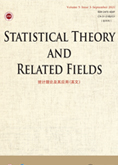References
- Foster, J. C., Taylor, J. M., & Ruberg, S. J. (2011). Subgroup identification from randomized clinical trial data. Statistics in Medicine, 30(24), 2867–2880. [Google Scholar]
- Lee, Y., Lin, Y., & Wahba, G. (2004). Multicategory support vector machines: Theory and application to the classification of microarray data and satellite radiance data. Journal of the American Statistical Association, 99, 67–81. [Taylor & Francis Online], [Google Scholar]
- Su, X., Tsai, C.-L., Wang, H., Nickerson, D. M., & Li, B. (2009). Subgroup analysis via recursive partitioning. The Journal of Machine Learning Research, 10, 141–158. [Google Scholar]
- Zhao, Y., Zeng, D., Rush, A. J., & Kosorok, M. R. (2012). Estimating individualized treatment rules using outcome weighted learning. Stat, 107(499), 1106–1118. [Taylor & Francis Online], [Google Scholar]
- Zhang, B, Tsiatis, A., Davidian, M., Zhang, M., & Laber, E. (2012). Estimating optimal treatment regimes from a classification perspective. Stat, 1, 103–114. [Google Scholar]








 52153001012@ecnu.cn
52153001012@ecnu.cn




 loading......
loading......